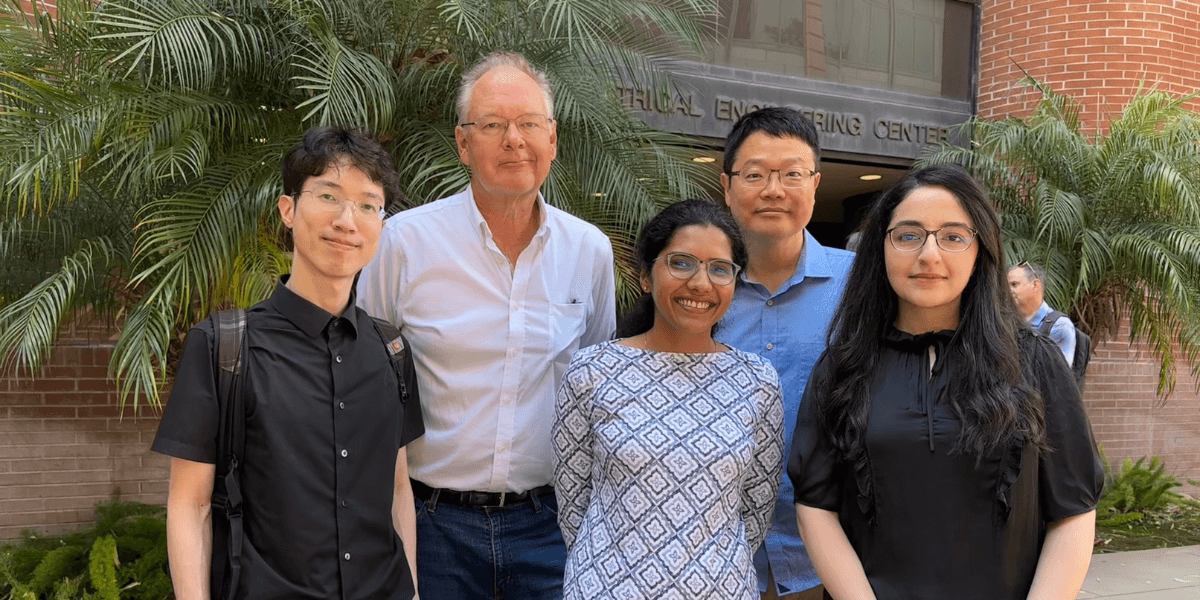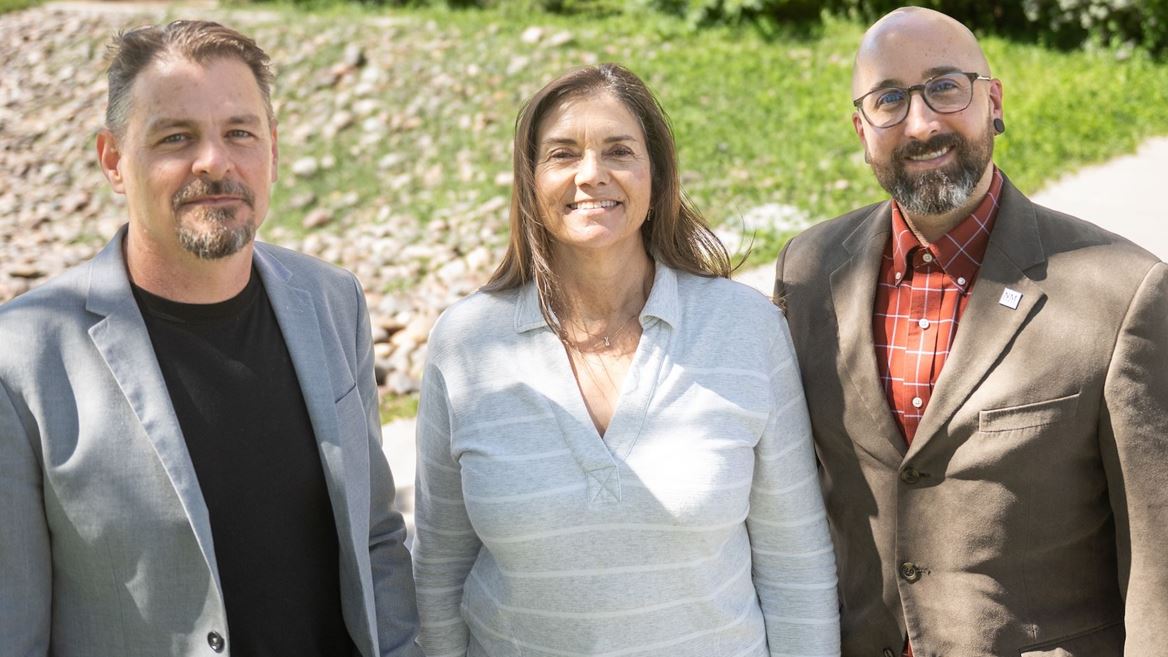3 New Faculty Members Join the Ming Hsieh Department of Electrical and Computer Engineering – USC Viterbi


USC’s Ming Hsieh Department of Electrical and Computer Engineering and the School of Advanced Computing welcomed three new faculty members, Paria Rashidinejad, Sung Kyu Lim, and Priyadarshini Panda, as they join Department Chair, Richard M. Leahy, at the new faculty welcome.
USC’s Ming Hsieh Department of Electrical and Computer Engineering and the School of Advanced Computing welcome three new faculty members whose research spans diverse areas of artificial intelligence (AI) at a pivotal moment in the field’s evolution. This is a testament to USC’s role in the nation’s technological development and leadership in shaping the future of computing. This comes as the university’s computing initiatives are in full swing, with the launch of a new artificial intelligence major, a surge in the number of students joining ECE this year, and the opening of the $130 million Dr. Allen and Charlotte Ginsburg Human-Centered Computation Hall — a state-of-the-art hub featuring cutting-edge AI research spaces, study pods, and collaborative facilities.
Meet our new faculty:
Priyadarshini Panda | Lloyd F. Hunt Early Career Chair and Associate Professor of Electrical & Computer Engineering | Ph.D. in Electrical and Computer Engineering, Purdue University.
Research focus: My research focuses on developing algorithm and hardware design solutions to enable energy-efficient, sustainable and ubiquitous artificial intelligence (AI) technologies. I am inspired by the brain and embrace nature’s blueprint of integrating efficiency, robustness and adaptability as a framework for defining the future of sustainable AI. My lab’s research spans two key areas: 1) Neuromorphic Computing – Developing bio-inspired spiking neural networks and exploring emerging compute-in-memory accelerators through device–circuit–architecture–algorithm co-simulation and optimization. 2) Efficient Machine Learning – Creating compression-friendly algorithms (leveraging sparsity and quantization) for transformers, large language models, and foundation models, as well as advancing system integration and acceleration on FPGAs, SoCs, and ASICs.
What attracted you to electrical and computer engineering at USC? Exceptional faculty and students at USC are driving numerous initiatives to push the frontiers of computing, including the launch of the School of Advanced Computing. The environment in ECE offers rich opportunities for collaboration with experts working across every layer of the compute stack—from devices, circuits, and architectures to systems—as well as with faculty engaged in interdisciplinary domains such as robotics and brain–machine interfaces.
If you could offer one piece of advice to your students, what would it be? Stay curious and persistent! Research is rarely a straight path; there will be moments of uncertainty, failed experiments, and unexpected results. But if you approach each challenge with curiosity and see setbacks as opportunities to learn, you will not only make progress in your work but also grow as a thinker and problem solver. And if you are interested in contributing to the field of efficient machine intelligence, come talk to me.
Any hobbies? Reading, hiking.
Paria Rashidinejad | WiSE Gabilan Assistant Professor of Electrical and Computer Engineering | Ph.D. in Electrical Engineering and Computer Sciences, UC Berkeley.
Research focus: My research focuses on the mathematical foundations of AI and developing capable and general AI systems for reliable integration into the real world. Recently, I’ve been working on foundation models, reinforcement learning, model steering, and theoretical understanding, aimed at improving capabilities, alignment, and safety of AI systems. My latest work focuses on improving reasoning and alignment of language models through principled reinforcement learning.
What attracted you to electrical and computer engineering at USC? I’m excited about joining the ECE Department at USC because of its strong research, collaborative culture, and interdisciplinary opportunities, all paired with access to California’s tech scene, making it an ideal place to grow as a researcher and create impact.
If you could offer one piece of advice to your students, what would it be? Beyond technical skills, an important skill for a researcher is recognizing compelling problems and promising ideas. You can cultivate this skill by staying curious, reading broadly, attending seminars, and engaging with researchers both within and outside your subfield.
Any hobbies? Outside of work, I enjoy spending time in nature, oil painting, visiting museums, and exploring music, movies, and books. I also enjoy cooking and experimenting with new recipes.
Sung Kyu Lim | Dean’s Professor of Electrical and Computer Engineering | Ph.D. in Computer Science, UCLA.
Research focus: Multi-chip integration is now standard in cloud AI and increasingly used in edge learning. Using 2.5D and 3D ICs improves energy efficiency and latency for data transfer and computation. This progress is driven by automated design and simulation, where AI-driven EDA tools are replacing manual efforts. At USC, my team advances these tools by combining AI and traditional algorithms to design heterogeneous AI chips built from chiplets in 2.5D and 3D configurations.
What attracted you to electrical and computer engineering at USC? World-class faculty and students, a vibrant collaborative environment, a wealth of resources, and a warm, welcoming community.
If you could offer one piece of advice to your students, what would it be? Be ambitious, patient, open-minded, and consistent.
Any hobbies? Playing acoustic guitar.
Published on October 2nd, 2025
Last updated on October 2nd, 2025
link







